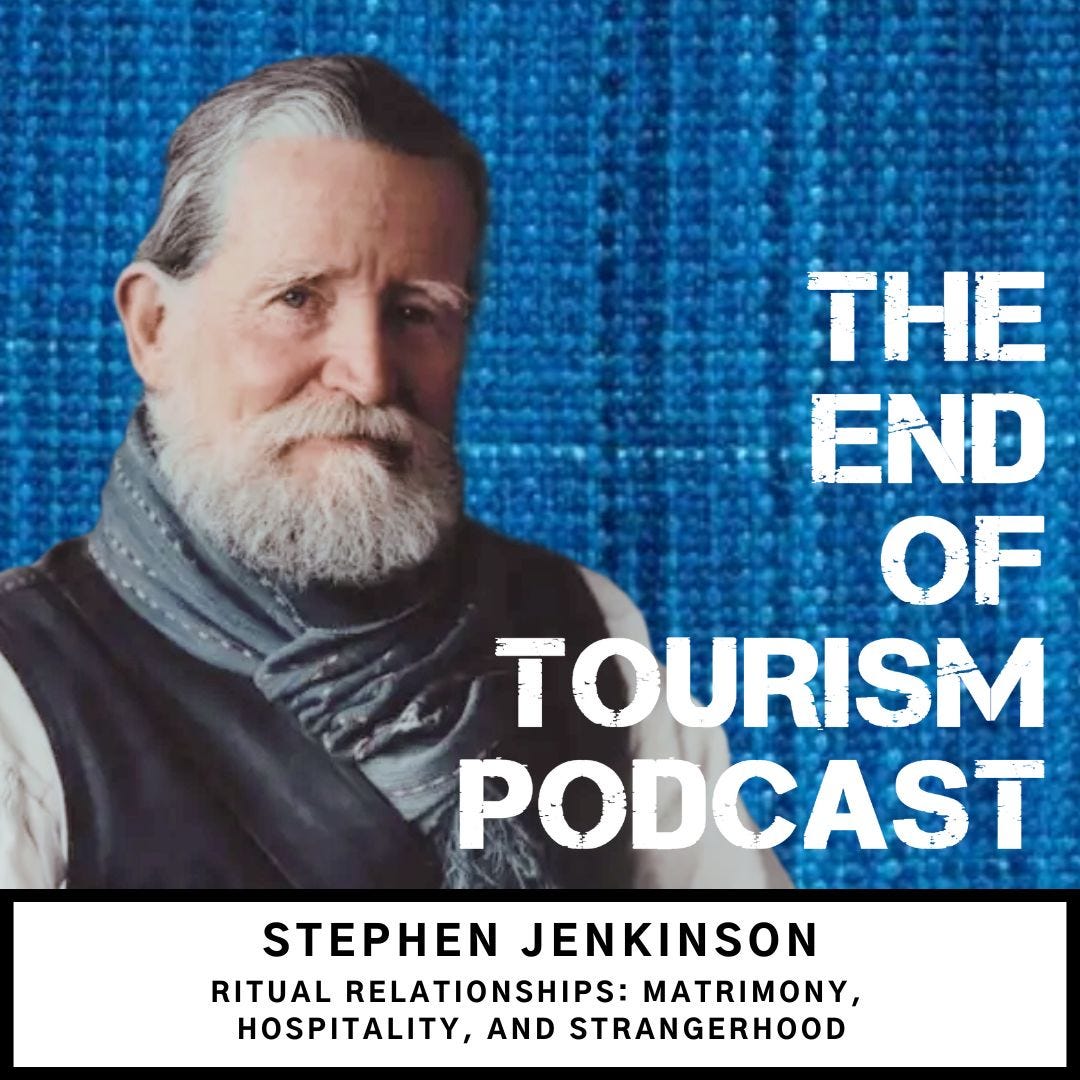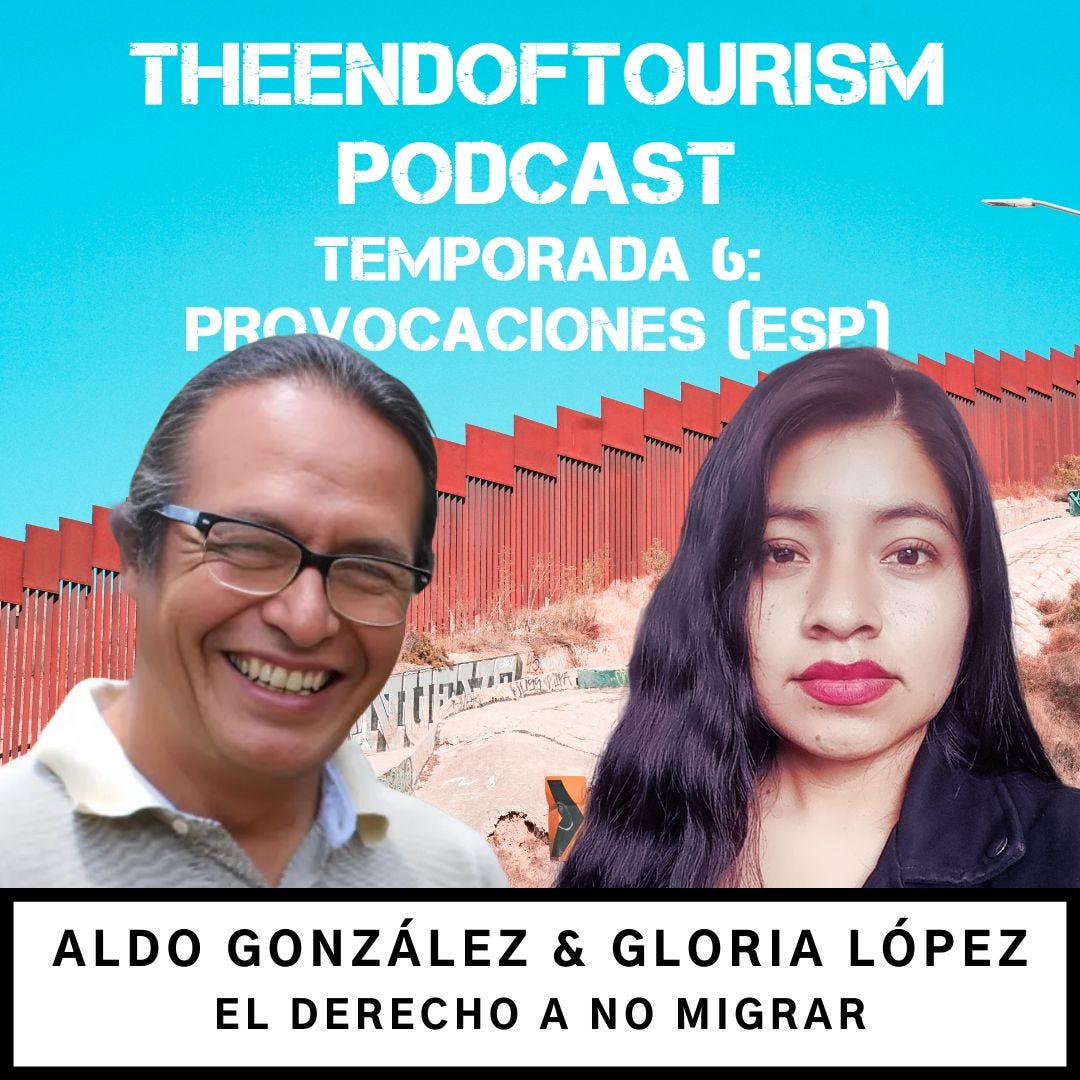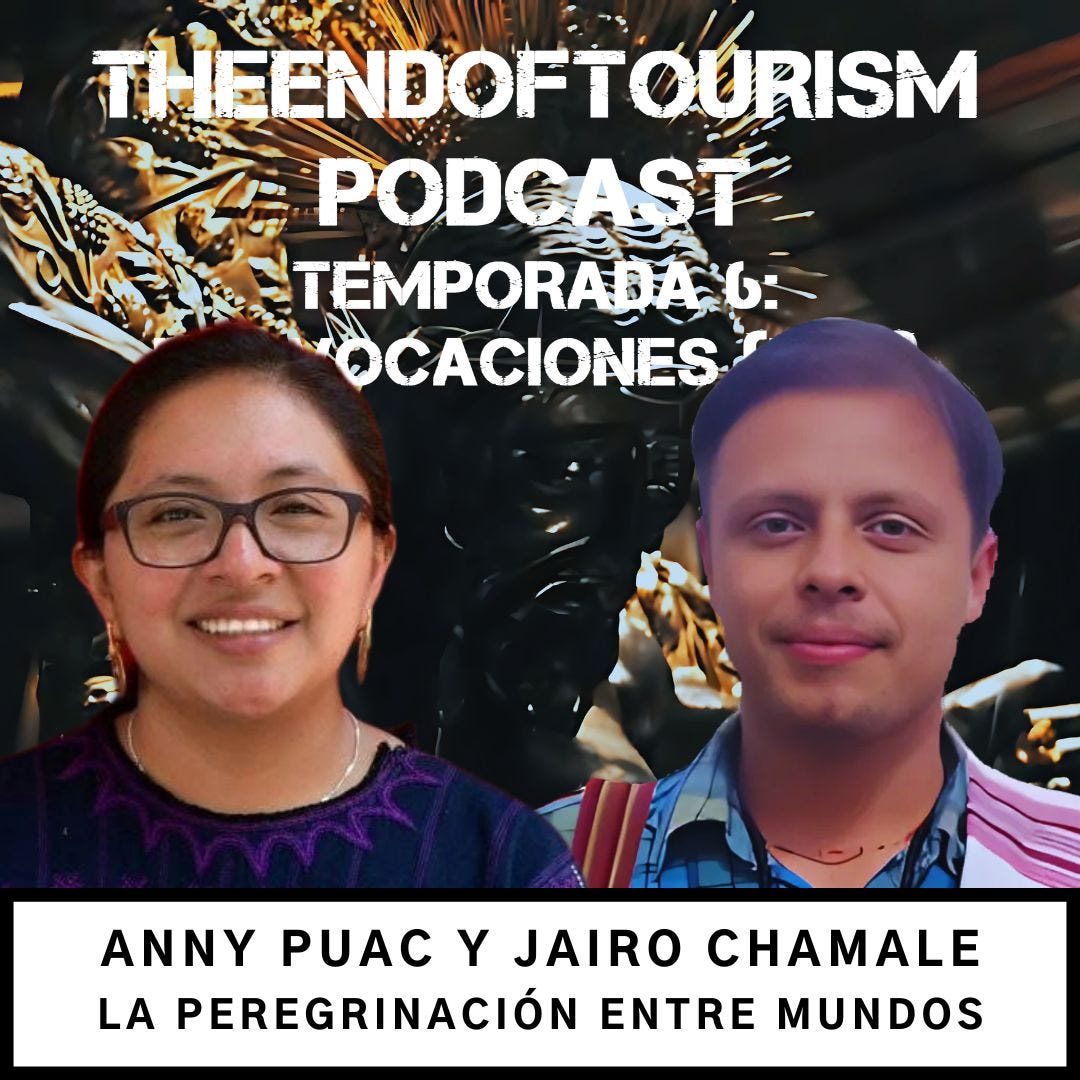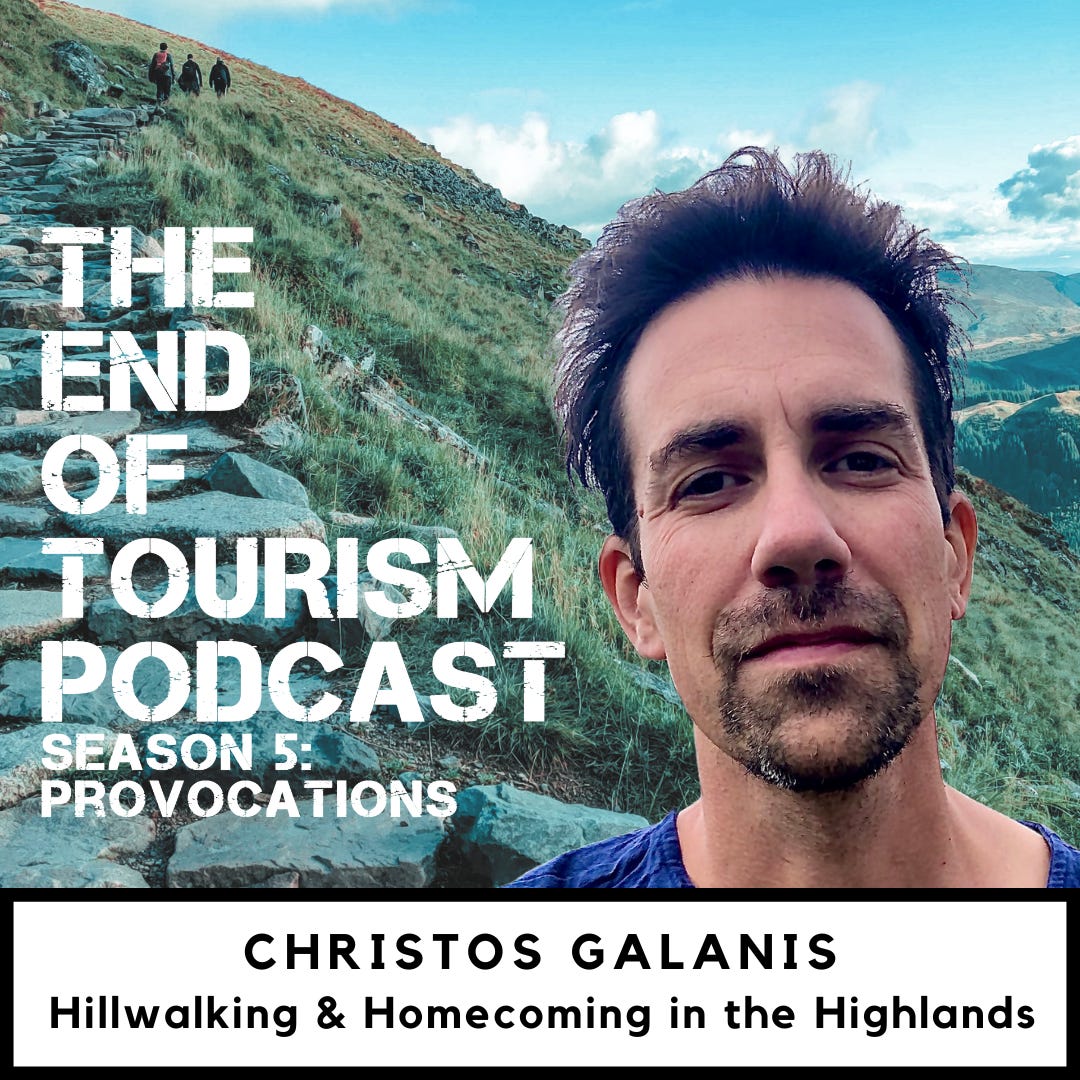S5 #6 | Relearning Home & Hospitality w/ Manish Jain (Ecoversities)
Description
On this episode, my guest is Manish Jain, a man deeply committed to regenerating our diverse local knowledge systems, cultural imaginations and inter-cultural dialogue. Inspired by MK Gandhi, Rabindranath Tagore, Ivan Illich, his illiterate village grandmother, his unschooled daughter, indigenous communities and Jain spiritual philosophy, he is one of the leading planetary voices for deschooling our lives and reimagining education.
He has served for the past 25 years as Chief Beaver (ecosystems builder) of Shikshantar: The Peoples’ Institute for Rethinking Education and Development based in Udaipur, India and is co-founder of some of the most innovative educational experiments in the world - the Swaraj University, the Jail University, Complexity University, Tribal Farmversity, the Creativity Adda, the Learning Societies Unconference, the Walkouts-Walk-on network, Udaipur as a Learning City, the Families Learning Together network, Berkana Exchange. He co-launched the global Ecoversities Alliance with 500+ members in 50 countries.
Show Notes:
Kidnapped by the American Dream
Grandma’s University
Reclaiming our Cultural Imagination
Cultural Imagination for the Culturally Homeless
The Radical and Exponential Power of Trust
Unlearning Cultural Appropriation in the Oral Tradition
Jugard, or “playful improvisation”
Being Reclaimed by Ancestors
Swaraj University - Money, Love, and Death
Alivelihoods and Deadlihoods
Traditions of Hospitality in Rajasthan
Ecoversities
Homework:
Transcript:
[00:00:00 ] Welcome, Manish, to the End of Tourism podcast. Thanks for joining me today.
Thank you, Chris. Great to be here. Great to be with you.
Speaking of here, I was wondering if you could share with our listeners where you find yourself today and maybe what the world looks like for you where you are.
Yes, I live in a very magical place called Udaipur.
It's in Rajasthan, India. I have been here for the last 25 years. Before that I was moving cities every year. I was living in the U. S. and Europe. And my village is about two hours from where I live, from the city. And I have lots of relatives here, lots of ancestors around. And this happens to be one of the major tourist destinations of India.
So it's an interesting combination of very [00:01:00 ] cosmopolitan kind of global jet set coming in, but also lots of traditional culture, local knowledge, still alive. We were lucky to be called backwards and underdeveloped. And so many things have remained but again under, under continuous threat by kind of urbanization and global economy.
But yeah, it's a very beautiful place, lots of palaces, lakes all kinds of animals on the street. On a good day you'll see an elephant walking down the street or a camel just in our neighborhoods and yeah, I love it here. So it's, I mean, it's found a place in my heart for sure.
Hmm. What a gift. What a gift to, to live in a place that you love and, you know, it seems to be that question at the heart of the themes of the podcast and in that regard, I wanted to begin by asking you a little bit about your journey, Manish. So[00:02:00 ] from what I've read, from what I've heard, a lot of your work centers around de schooling and unlearning, specifically with Swaraj University and other educational endeavors, Ecoversities being one of them.
And I'd like to return to those themes and projects in a little bit and start by asking you, among other things, about your earlier accolades as a Harvard graduate and someone with a degree from Brown University. One of your bios says that you worked for, among others the American multinational investment bank, Morgan Stanley, as well as UNESCO, UNICEF, World Bank, and USAID in South Asia, Africa, and the former Soviet Union.
And so I'm wondering if you'd be willing to share what led to your initial involvement in these rather prominent institutions, and then subsequently, what led to leaving them behind thereafter?
Yeah, thank you. Yeah, hearing that [00:03:00 ] always gives me the shivers a little bit. It's like such a long time ago now. But so I kind of actually grew up with a deep sense of wanting to serve, serve the world. And when I was growing up I actually, I tell people I was kidnapped when I was three years old, born in India, but then taken to the U. S. Kidnapped by the American dream, which I over time realized was a nightmare for most of the planet.
So this deep sense of service has always been, been with me, maybe from my mother, from my father, from my grandparents, many, many sources from, inspired by also Gandhi and, and Tagore and many other Indian freedom fighters.
But I kind of grew up with this narrative, if you want to serve, you should go to the big places, the places of big power, those institutions, that's where you can influence, that's where you can make the most impact. And so that kind of was a trajectory that I, I kind of [00:04:00 ] got put on I kind of was very good.
I never liked being in these institutions, but I was very good at faking it I faked it through school all the way to Harvard and, and so I was pretty good at faking it and eventually it caught up with me and I started feeling like I was becoming a fake. So, but going to those places I thought there were, you know, those were the centers of power and that when I got there, I started feeling that these places, each of these places, one by one, I started realizing that they were actually quite powerless in many ways, surrounded by a sense of scarcity and fear and very limited imagination.
And so one by one, I became disillusioned with each of each of those places. I was expecting that, you know, these would be the places which could help serve humanity, but I realized that they were built on, you know, this continuous model of extraction and colonization and exploitation of [00:05:00 ] life.
And so even with education, I felt like, okay education will be the solution and I started realizing that education was a huge part of the problem. And so that's what led me started me on the de schooling path to try to see how we can find other ways besides relying on these institutions and the logic of capitalism and commodification to solve our problems. You know, over time I started really developing a severe mistrust of experts.
I was one of them, like, although I'm fake and so are the rest of these guys. So by the time I was 28, I hit the wall. And I was like I don't have anywhere else to go, I've been to all these big places, and I don't really see, see any hope from them. I don't think they can be repaired either or that they can actually take the kinds of initiatives that are needed to change the game.
So that's what led me back to India then[00:06:00 ] to be with my illiterate village grandmother. And I thought I'll take care of her. And then I, my wife and I realized that we had inadvertently become part of our grandmother's university and she was our unlearning guru. To both Get beyond I would say a lot of our own fears and anxieties, get beyond a lot of the, let's say Western liberal do gooder frameworks, get beyond our attachment to institutions just to solve things for us and start to understand and remember, I think remembering is a word that I have discussed many times with old common friend of ours, Gustavo Esteva, but start to remember that we have much more richness and wealth and creativity, possibility within us and our, and within our communities. So that's been a little bit of the journey to re remember and reclaim and reimagine things.
I [00:07:00 ] remember seeing in one of your talks that you said that your work or to you, what you understood your work to be is, is a way of reclaiming our cultural imagination. I'm wondering if you could elaborate a little bit on that.
Yeah, I think basically I think the deepest form of colonization has happened is to our imaginations.
And there is a phrase from the eighties from Ronald Reagan and Margaret Thatcher called TINA. "There Is No Alternative." So, as there was an uprising that started happening around the world questioning the dominant development paradigm, the global economy, it was quickly suppressed, repressed by this phrase, TINA.
This is the best system that we have, and you know, there's, there's nothing beyond it, so you should just try to improve what's there. And so I think what then [00:08:00 ] people are forced into is to try to fix or let's say work with what is the existing frameworks and definitions that we have been fed about things like progress or development or success or happiness and then we are all in a very deep endless losing race to try to catch up with something.
And we're not even sure what happens when you win. Maybe that's where it hit me. You know, there's a saying, if you, if you beat them at their own game, you lose everything. And so I kind of started realizing that personally, and also when I was looking at the development paradigm more different more closely.
So I think, you know, what else is possible first of beyond the kind of logic of the rational mind, what's possible beyond the anthropocentric perspectives that we have on life, what's possible beyond global corporations and institutions deciding what's best for us, what's [00:09:00 ] possible beyond markets and technologies as the solutions for all of the planet's woes.
I think that's what we're trying to explore when I talk about cultural imagination. And I, I t
























